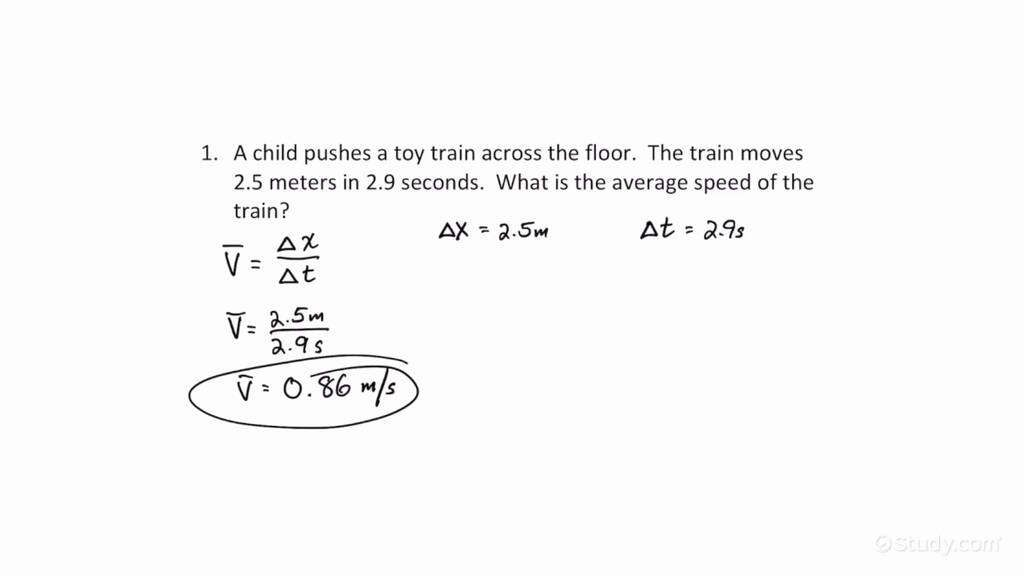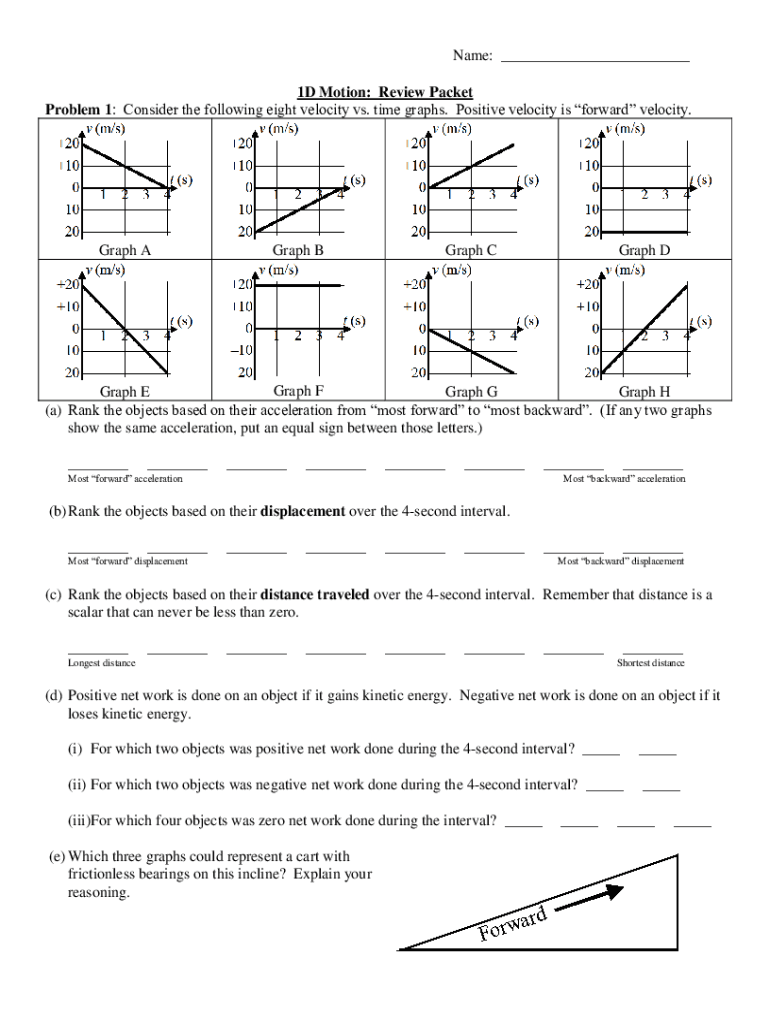Master Constant Velocity with Our Problem-Solving Worksheet

When it comes to physics, understanding motion is fundamental. One of the basic concepts in kinematics, the study of motion, is constant velocity. Grasping this principle not only sets a strong foundation for tackling more complex physics problems but also enhances your logical thinking and problem-solving skills. Let's delve into how you can master constant velocity with our meticulously crafted problem-solving worksheet.
What is Constant Velocity?

Constant velocity refers to motion where an object travels with a steady speed in a straight line. Here are some key aspects to understand:
- No Change in Speed: The object maintains the same speed throughout its journey.
- No Change in Direction: The direction of travel remains consistent.
- Graphical Representation: A constant velocity is shown as a straight line on a position-time graph.
Key Equations for Constant Velocity

To solve problems related to constant velocity, you’ll often use these equations:
- Velocity (v) = Distance (d) / Time (t)
- Position (x) = Initial Position (x₀) + Velocity (v) * Time (t)
📝 Note: Remember to keep units consistent when performing calculations.
Using Our Problem-Solving Worksheet

Our worksheet is designed to guide you through various scenarios to understand and apply constant velocity. Here’s how you can make the most of it:
- Identify the Knowns: Begin by listing all given information. Know which variables are given and which need to be found.
- Formulate the Problem: Determine what needs to be calculated. Is it the distance, time, or velocity?
- Choose the Right Equation: Select the appropriate equation from the list above based on the knowns and the unknown.
- Plug in the Numbers: Substitute the known values into the equation.
- Solve for the Unknown: Work out the unknown variable with correct units.
- Check your Units: Make sure the units are consistent and the final answer makes sense in the context of the problem.
Example Problems

Here’s a practical example to illustrate how you can solve a constant velocity problem:
Problem 1: Finding Distance

A car travels at a constant velocity of 20 meters per second for 5 minutes. How far does it travel?
| Given | Find |
|---|---|
| Velocity (v) = 20 m/s | Distance (d) |
| Time (t) = 5 minutes = 5 * 60 = 300 seconds |

Solving:
d = v * t d = 20 m/s * 300 s d = 6000 meters or 6 kilometers
Problem 2: Calculating Time

A cyclist travels a straight path of 9 kilometers with a constant velocity of 15 km/h. How long will it take?
| Given | Find |
|---|---|
| Velocity (v) = 15 km/h | Time (t) |
| Distance (d) = 9 km |
Solving:
t = d / v t = 9 km / 15 km/h t = 0.6 hours or 36 minutes
Tips for Enhancing Your Problem-Solving Skills

Beyond the worksheet, here are some strategies to further improve your ability to handle constant velocity problems:
- Practice Consistency: Always keep track of units, ensuring consistency in your calculations.
- Visualize Motion: Create mental or drawn pictures of the scenarios to better understand the problem.
- Think Dimensionally: Remember to consider all dimensions (distance, speed, and time) to fully grasp the problem.
- Review Fundamentals: Periodically revisit the fundamental principles of kinematics to solidify your understanding.
- Collaborative Learning: Discuss problems with peers to gain different perspectives.
The Benefits of Mastering Constant Velocity

Understanding and applying constant velocity concepts extends far beyond physics class:
- Foundation for Advanced Physics: It’s crucial for understanding acceleration, forces, and motion in multiple dimensions.
- Real-World Applications: Helps in everyday tasks like estimating travel time, optimizing routes, and understanding fuel consumption.
- Problem-Solving Skills: Enhances your ability to analyze and solve problems logically and methodically.
To summarize, mastering constant velocity through our problem-solving worksheet can provide a solid foundation not just in physics but in life skills like critical thinking and problem-solving. By understanding the principles, consistently practicing with real-world problems, and using the right techniques, you set yourself up for success in more complex areas of study and practical applications.
What is the difference between velocity and speed?

+
Velocity includes both the speed of an object and its direction, while speed is only the rate of distance covered.
Can constant velocity exist in real life?

+
While perfectly constant velocity is rare due to external factors like wind resistance or friction, we often approximate scenarios where an object travels with a nearly constant speed over short distances, like a car on a straight highway.
How do I know if I am solving a constant velocity problem?

+
Look for the phrases like “constant speed,” “straight-line motion,” or “no acceleration” in the problem statement. These are indicators that the velocity is constant.